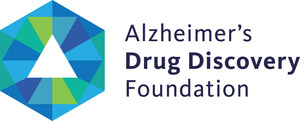NEW YORK, Dec. 15, 2020 /PRNewswire/ -- The Association for Frontotemporal Degeneration (AFTD) and the Alzheimer's Drug Discovery Foundation (ADDF) issued a joint request for proposals (RFP) targeting novel research to advance and accelerate ways to diagnose and treat frontotemporal degeneration (FTD) -- the most common dementia for people under 60. Funding for this RFP is being provided through the Treat FTD Fund, with award recipients receiving up to $2 million.
Funded by the Lauder Foundation, Leonard A. Lauder, Ronald S. Lauder, and the Samuel I. Newhouse Foundation, the Treat FTD Fund was established in 2016 as a 10-year, $10 million initiative to accelerate clinical trials for FTD. The fund helps to address challenges in FTD research by building on emerging scientific understanding of biological mechanisms underlying FTD, providing critical funding for early-stage clinical trials, and stimulating the field to develop new therapies for FTD disorders.
"AFTD is one of our closest allies and a long-standing partner in the fight against neurodegenerative disease," said Dr. Howard Fillit, the ADDF's Founding Executive Director and Chief Science Officer. "Through this collaboration, we are offering a great opportunity for both academics and biotech companies worldwide to apply for funding that will allow them to push forward the development of drugs for this devastating, rare, and underfunded disease."
The ADDF/AFTD partnership, which offers research support from three different funding streams, including the Accelerating Drug Discovery for FTD Fund, the Treat FTD Fund, and the Diagnostics Accelerator, has awarded $8.7 million to 39 FTD research projects.
"Supporting the best science available in the quest for a cure is key for our organization, and the ADDF is an important part of that effort," added Susan L-J Dickinson, AFTD's Chief Executive Officer. "Running clinical trials in persons diagnosed with FTD helps to enable investigators to identify optimal approaches for targeting this unique cohort."
Currently, there are no approved treatments that delay or halt the progression of FTD disorders. While there are increasing numbers of promising treatments entering clinical trials, the number remains small and none have resulted in viable treatments.
The Treat FTD Fund is designed to support programs testing drugs or devices for FTD, while building clinical data around novel FTD disease mechanisms and corresponding biomarker endpoints in response to treatment. Letters of Intent will be accepted through February 5, 2021. Applications must be submitted online.
About the Alzheimer's Drug Discovery Foundation (ADDF)
The Alzheimer's Drug Discovery Foundation is the only public charity solely focused on funding the development of drugs for Alzheimer's disease and related dementias, employing a venture philanthropy model to support research in academia and the biotech industry. Through the generosity of its donors, the ADDF has awarded more than $150 million to fund over 626 Alzheimer's and dementia drug discovery programs and clinical trials in 19 countries. To learn more, please visit: https://www.alzdiscovery.org/.
About The Association for Frontotemporal Degeneration (AFTD)
Founded in 2002, The Association for Frontotemporal Degeneration is the leading U.S. nonprofit working to improve the lives of people with FTD, their care partners and loved ones. AFTD promotes and funds research toward diagnosis, treatment and a cure for FTD; stimulates greater public awareness; provides information and support to those directly impacted; fosters education for healthcare professionals; and advocates for appropriate, affordable services. AFTD's signature research efforts include the FTD Biomarkers Initiative, a multi-year effort to fund innovative approaches to the discovery and development of urgently needed FTD biomarkers. AFTD envisions a world with compassionate care, effective support and a future free of FTD.
SOURCE Alzheimer's Drug Discovery Foundation

Related Links
WANT YOUR COMPANY'S NEWS FEATURED ON PRNEWSWIRE.COM?
Newsrooms &
Influencers
Digital Media
Outlets
Journalists
Opted In




Share this article